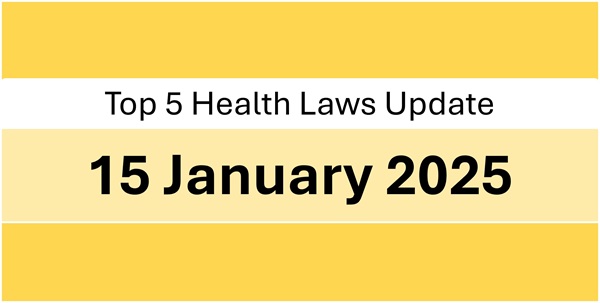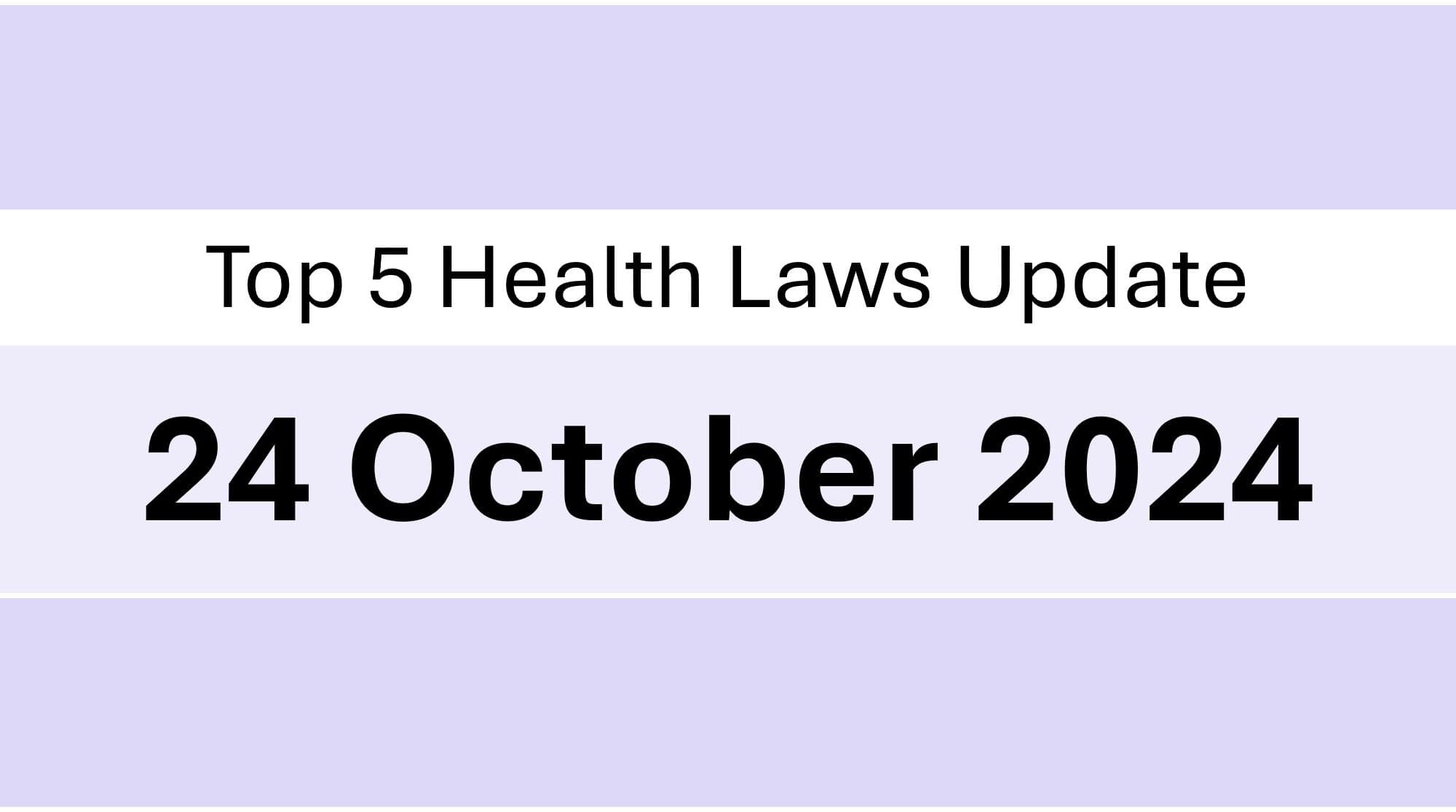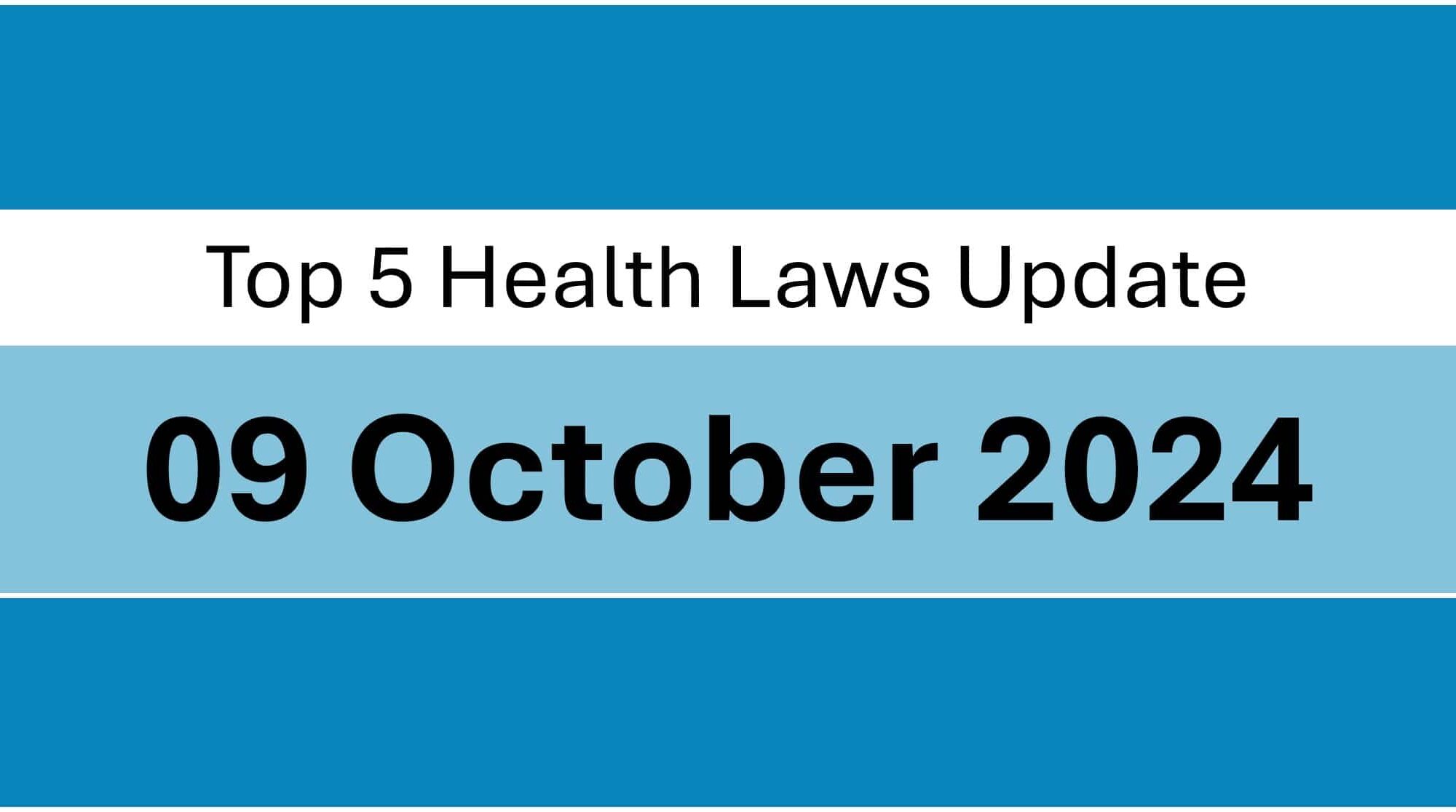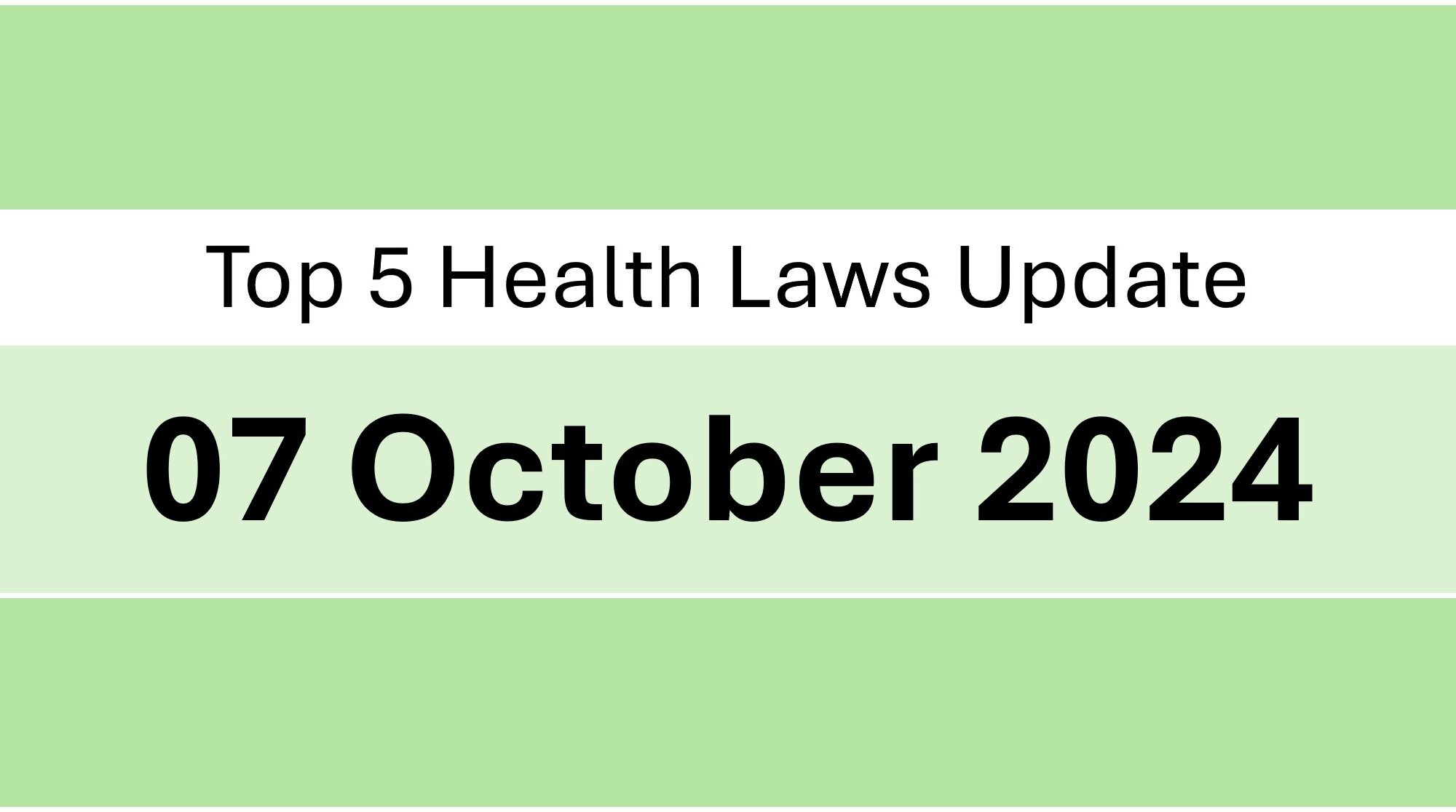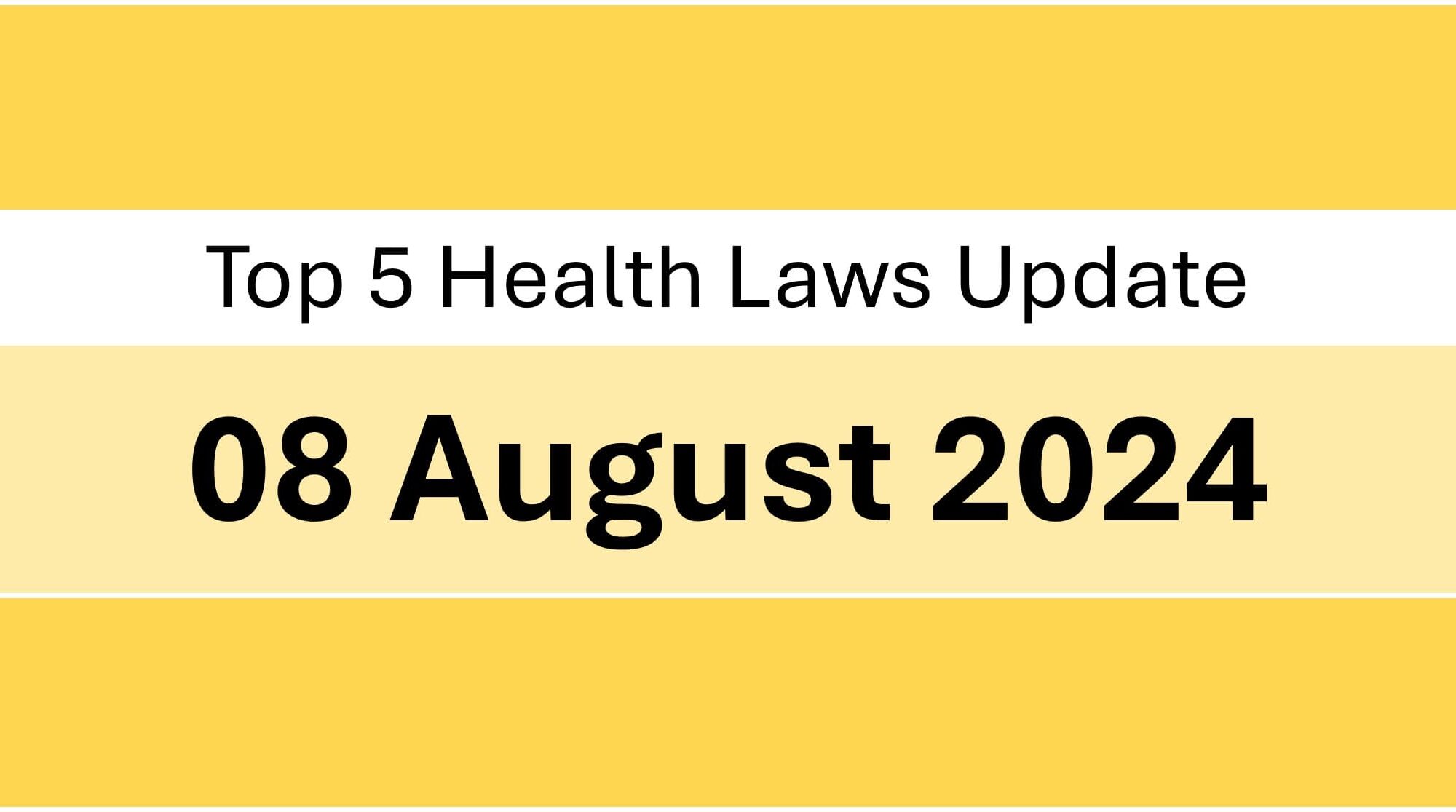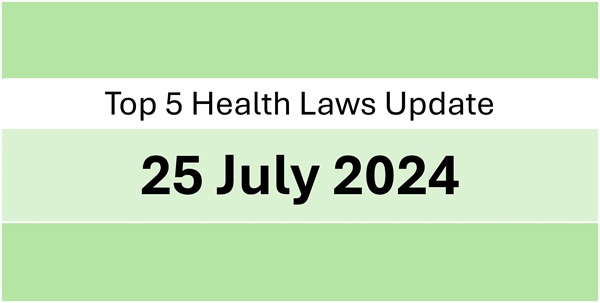Dear Readers, we are happy to share the most interesting legal and policy updates concerning health industry that we read today. we hope you enjoy reading it.
1. India’s Ministry of AYUSH has notified an amendment to the Drugs Rules, 1945, inserting Schedule TB, which specifies the standards for the delivery mechanism, preservatives, and excipients that must be complied with in order to obtain a license for the manufacture of Ayurveda, Siddha, Unani, or other traditional medicines that use a nasal spray as a delivery mechanism.
Source: bit.ly/4j9pCHs
2. India’s Directorate General of Foreign Trade (DGFT) has notified the revised Schedule II (Export Policy) whereby, the terms of export have been updated in conformity with the Finance Act, 2024.
Source: bit.ly/4jss5x0
3. India’s indirect tax regulator has issued a circular clarifying the conditions for eligibility for the interest waiver scheme introduced by the GST Council late last year. In addition to submitting applications and filing Forms GST SPL-01 and GST SPL-02, applicants are also required to withdraw any appeal application filed against demand orders, notices, or statements for which the interest waiver is being sought.
Source: bit.ly/40ohfzs
4. India’s Parliamentary Standing Committee on Chemicals and Fertilizers, in its most recent report, has expressed concern that the low number of IVD manufacturers selected under the PLI incentive scheme may not be sufficient to meet the country’s domestic requirements
Source: bit.ly/42a7zuM
5. The United States Federal Trade Commission (US FTC) has alleged that several of the country’s largest insurance companies entered into vertical arrangements with benefit managers to mark up the prices of common and essential prescription medicines, totalling USD 7.3 billion between 2017 and 2022.
Source: bit.ly/4fXStMi

